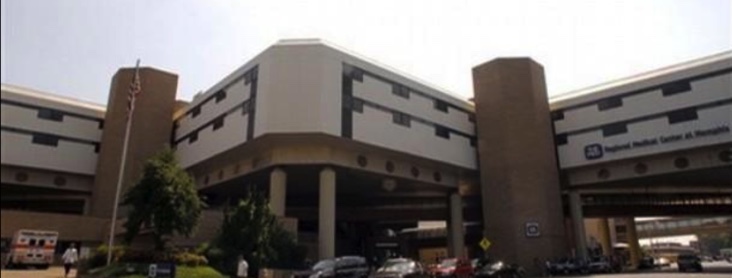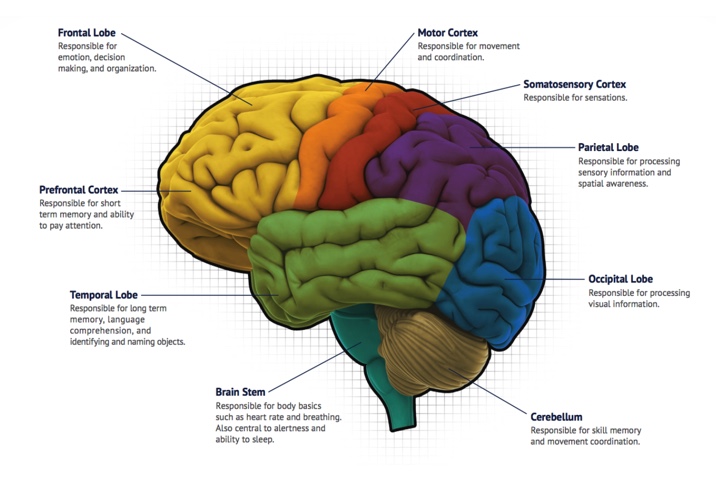In God’s Hands
When Richard received the call at Bellevue Baptist and heard of his wife’s accident, his worst thought was that she’d broken her arm or leg. There was no additional detail, but he made enough haste to Regional One Health Medical Center approximately 18 miles away.

At the scene, bewildered bystanders moved Paulette from the sidewalk to the front of the convenience store until an ambulance arrived. Clearly injured in multiple areas, she lay unconscious with serious head trauma but she was alive. Upon her arrival at “The Med” as it’s called, she immediately became the top priority patient, so severe was her condition. As Richard arrived, Paulette had already been taken in for major surgery due to swelling on her brain.
While he waited, unnerved and in shock, he prayed, “Lord she’s in Your hands. She’s Your child. She belongs to You more than she does to me.” After surviving all that had come before, how could she survive this?
Surgery and Recovery
Seven and a half hours later, surgeons informed the family that due to a blood clot pressing on her skull, they were forced to remove a plate of it which they would store to be reinserted later. Additionally, at least ten percent of her lower temporal lobe was removed due to damage beyond repair. The temporal lobe is responsible for long term memory, language comprehension, and naming and identifying objects. The prognosis? She would most likely remain in a vegetative state, if she survived, for the rest of her life.

In recovery, Paulette looked to be the patient of Dr. Frankenstein. She was on a ventilator, and so many machines lined the room that you could hardly navigate around it. She had bolts holding her skull in place, and her brain continued to bleed.
The Glasgow Coma Scale
There is something called the Glasgow Coma Scale. In essence, the scale is used to measure the brain activity of a patient after head trauma or recovering from a coma by using a point system in three categories: Eye-Opening Response, Verbal Response, and Motor Response. Patients are assessed as having a severe, moderate, or mild brain injury based on a 15 point scale. Anything less than an 8 is considered severe. Doctors told Richard that Paulette was a 4 going down to a 3. There wasn’t much encouragement.
Her prior illnesses had prompted Paulette to sign a DNR (Do Not Resuscitate) in the event of her untimely death. But despite all of her injuries, including a broken collar bone, cracked pelvis, and a broken little toe, Paulette was not on life support, and so the DNR was never activated, So, she lay, and Richard prayed, and the family anguished, but no one knew what each moment held for her, and only a miracle would suffice.
Miracle or Phenomenon

Most of us will never live through a trauma such as this with a loved one to know and understand the impact of every moment of waiting in the unknown. As machines whirred noisily around him, and nursing staff mechanically came and went, the room must have felt like a revolving scene at hurricane speed with Richard and Paulette in an eerie standstill at its eye. Doctors were constantly monitoring for responses and reactions to stimuli with low expectations and limited progress, that is unless Richard was in the room.
When Richard would enter the room with his big personality and booming voice, Paulette’s eyes would begin to move in his direction and her fingers would twitch. For her initial doctor, a pronounced Atheist, this behavior was unprecedented. He called it a medical phenomenon. Richard believed it to be a miracle. Within 5 weeks, Paulette could breathe without the ventilator and gradually she moved out of trauma into ICU.
Your Will
Still, the entirety of Paulette’s situation remained dark. Missing a section of her skull plate on the right side of her head, her deformed face held infected and unfocused eyes. Bruised and swollen, “[She] was a horrible sight to see.” During this time, Richard would cry and weep and pray to God the commitment, “Lord if it’s Your will. It’s Your will.” In life or death, Richard would accept the fate that God had intended for the love of his life and best friend, Paulette.



